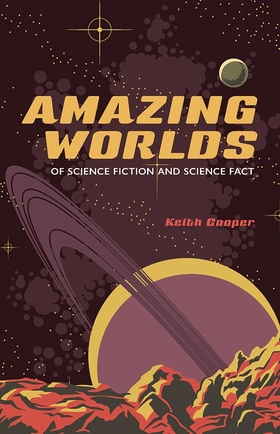American aerospace engineer Dandridge MacFarland Cole, who died just over forty years ago, was an early advocate of exploring the asteroids, advocating their eventual colonization in his book Islands in Space: The Challenge of the Planetoids. Alex Michael Bonnici takes a look at this fascinating figure, placing him in the tradition of Tsiolkovsky and Goddard as a futurist whose thinking challenged us to think big. Among his startling ideas was the use of asteroids as interstellar arks or generation ships. Bonnici’s tribute is well deserved and highly recommended.
——-
The Galaxy Zoo continues to draw remarkable traffic. Launched in mid-July, this project to categorize galactic images taps the volunteer efforts of users from all over the planet. Users have thus far inspected almost seven million images and produced more than 12.3 million galaxy classifications. The Galaxy Zoo has now enrolled 85,000 participants, and is again demonstrating the power of networking to do things computers alone cannot manage as well as humans. Says Daniel Thomas (Portsmouth University): “We now have the world’s largest computer working for us, through the combined power of all these human brains.”
——-
Neil deGrasse Tyson’s August 5 essay in Parade presented the case for continued space exploration in the context of spin-off technologies that improve our daily lives. A key example was the development of image processing software for the Hubble Space Telescope that was adopted by Georgetown Medical Center for use in tumor detection. Tyson’s emphasis on the multi-disciplinary nature of the space enterprise hits home:
You cannot script these kinds of outcomes, yet they occur daily. The cross-pollination of disciplines almost always creates innovation and discovery. And nothing accomplishes this like space exploration, which draws from the ranks of astrophysicists, biologists, physiologists, chemists, engineers and planetary geologists. Their collective efforts have the capacity to improve and enhance all that we have come to value as a modern society.
Cross-pollination is exactly the right metaphor, and I would add that the growing involvement of the commercial sector in the human space enterprise adds substantially to this process.
——-
The second European Planetary Science Congress (EPSC) takes place at the Kongress Hotel am Templiner See, Potsdam, Germany from August 20th through 24th, with 500 planetary scientists expected to attend. Topics for the more than forty sessions range from the latest research on terrestrial planets to atmospheres, oceans, planetary moons and the current status of Solar System exploration. Also on the table: A roadmap for future lunar exploration and analysis of SMART-1 data.


I have been trying for years to find Cole’s books. Either there is a vast conspiracy that destroyed them or everybody who owns one hangs on to it!
Fred, I suspect the latter, but you’re right, Cole is hard to find, and I’m a guy who haunts used bookstores.